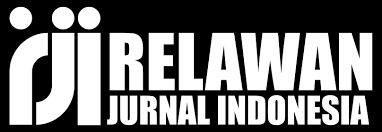Pengaruh Signifikan Penerapan Aplikasi Elektronik Faktur Pajak (E-Faktur) Terhadap Kepatuhan Wajib Pajak PT X
DOI:
https://doi.org/10.61722/jiem.v2i8.2152Keywords:
Electronic tax invoices; Data security; and Legal compliance.Abstract
The use of e-invoicing is increasing as an innovative method for companies to improve financial transparency. It allows for more accurate, timely and centralised recording of transactions, and reduces human error and data manipulation.
One of the key benefits of e-invoicing is its ability to streamline and speed up business processes. Transactions can be billed, validated and paid digitally, eliminating the need for physical documents and reducing processing time. In addition, improved access to data allows companies to analyse transaction data more comprehensively, identify trends, and make more informed business decisions.
However, the introduction of e-invoicing is associated with a number of challenges. Data security is an important aspect that requires strong security systems and sophisticated encryption protocols. In addition, companies must constantly update their systems and improve the knowledge of their employees to comply with evolving tax regulations.
Other challenges include internal resistance to change and adapting to the changing business environment, which can pose difficulties. Therefore, comprehensive socialisation and training are essential to ensure a smooth transition and maximise the benefits of e-invoicing.
Despite these challenges, e-invoicing has significant potential to improve an organisation's financial transparency. With the right implementation strategy, companies can optimise the benefits of this system, increase investor confidence, and achieve sustainable business growth.
References
Fardan Ma’ruf Zainudin, Rahadi Nugroho, & Hanik Susilawati Muamarah. (2022). PENGARUH KEPERCAYAAN KEPADA PEMERINTAH TERHADAP KEPATUHAN PAJAK DENGAN PERSEPSI KEADILAN PAJAK SEBAGAI VARIABEL INTERVENING. www.jurnal.pknstan.ac.id/index.php/JPI
Hapsari, A., & Pramudya, P. (n.d.). SELF ASSESSMENT IN TAX LAW. http://devotion.greenvest.co.id
Peraturan Dirjen Pajak, PER - 03:PJ:2022. (n.d.).
Perengin angin, W. A. (2016). PENGARUH PERCEIVED USEFULNESS DAN PERCEIVED EASE OF USE TERHADAP ATTITUDE TOWARD USING E-FAKTUR.
Satriana Ardi, I. (n.d.). TINJAUAN IMPLEMENTASI E-FAKTUR PAJAK: STUDI KASUS KPP PRATAMA MEDAN TIMUR.
Satriana Ardi Inayah. (n.d.). TINJAUAN IMPLEMENTASI E-FAKTUR PAJAK: STUDI KASUS KPP PRATAMA MEDAN TIMUR.
Transparansi di Era Digital. (2022). Inspektorat Jenderal Kementerian Perindustrian RI. https://itjen.kemenperin.go.id/post/transparansi-di-era-digital
Wahyudi Herry, & Sanjaya Surya. (2017). PENGARUH PENERAPAN ELEKTRONIK NOMOR FAKTUR (E-NOFA) DAN FAKTUR PAJAK FIKTIF TERHADAP PENERIMAAN PAJAK. https://doi.org/10.5281/zenodo.1049168
Downloads
Published
Issue
Section
License
Copyright (c) 2024 JURNAL ILMIAH EKONOMI DAN MANAJEMEN

This work is licensed under a Creative Commons Attribution-ShareAlike 4.0 International License.












